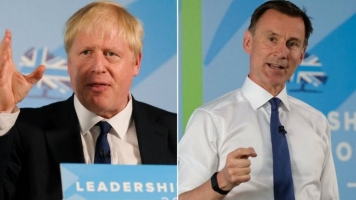
Written by Thom Rawlinson, Public Affairs Adviser and Aimie Stone, Senior Economist
The former Foreign Secretary, Boris Johnson is the current front runner in the race to be the next leader of the Conservative party and the UK’s future Prime Minister.
Throughout the campaign so far, Mr Johnson and his rival candidate Jeremy Hunt have both announced a series of tax cuts and spending policies. Brexit is of course still dominating both campaigns, yet the candidate’s policies proposed so far are more of a mixed bag, seemingly trying to appeal to the public with broad promises rather than focus on anything substantial that will ensure long-term economic stimulus.
Brexit
Johnson’s initial Brexit plan is to take the withdrawal agreement back to Brussels and remove the controversial ‘backstop’. Whether he is successful or not with any renegotiation which Parliament finds acceptable, he has pledged to deliver Brexit by the current 31 October deadline with or without a deal.
In a bid to stand firm to the EU, Johnson has also made threats to not pay the divorce bill and is yet to confirm that he wouldn’t overrule Parliament to ensure the Brexit deadline of October 31 is met.
Tax Policy
Johnson has made the following commitments to spending and tax reform with the government fiscal headroom or as he perceives it, ‘’spare cash’’:
- Increase the income tax higher rate threshold from £50,000 to £80,000
Analysts believe this would cost £9 billion to the UK government in foregone tax. This would be a costly tax change to benefit a small group who are typically already wealthy or high earners.
- Increase in the threshold at which workers’ pay National Insurance contributions (NICs)
Like his opponent, Boris Johnson has suggested there should be an increase to the point at which workers start paying NIC’s. However, this is another expensive policy which could cost at least £3 billion a year for each £1,000 that threshold is raised.
Spending Reform
Mr Johnson has suggested two new spending commitments during the campaign so far:
- Increase school spending to £5,000 per pupil sighting the importance of investing in education. This equates to an extra £4.6bn required over 2022-23, There is no clear revenue stream from which this policy would be funded.
- On defence, Johnson seeks to guarantee that the UK would exceed NATO’s ask 2% GDP spending on defence and look to maintain defence budget growth by 0.5% annually.
Industry Impacts
In relation to ADS’s sectors, most of the policies and announcements made by Mr Johnson thus far will have very limited impact. There are positives for future defence spending, but few details on any Brexit policies to support UK businesses in the event of No Deal. Details of how any money would be spent in relation to business at all are very thin on the ground.
Mr Johnson has said No Deal is not his preferred outcome, but he has outlined that he is prepared to leave without a deal. ADS has continuously stated that a No Deal Brexit it the worst possible outcome for members. The UK benefits from industry’s high value, long-term jobs and sustained investment in new technology which are threatened by a No Deal Brexit.
The result of who will become the next Conservative Leader and Prime Minister is expected to be announced on Tuesday 23 July. For more information on how to prepare for Brexit, please visit our Brexit Hub.





